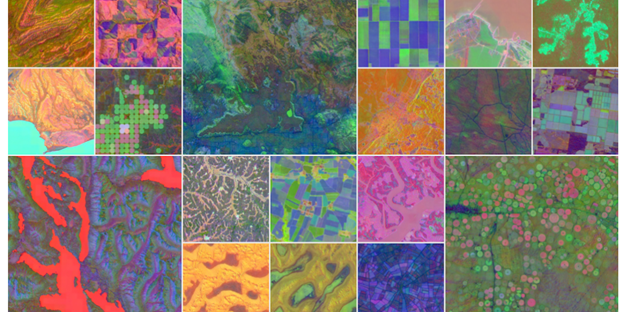Microsoft is reportedly preparing for the launch of GPT-5, OpenAI’s next-generation language model, with internal testing of a new “smart mode” for its Copilot AI assistant, according to The Verge.
OpenAI is planning to launch GPT-5 in early August. References to GPT-5 have already been spotted inside Microsoft’s Copilot web app, hinting at the imminent arrival of a new feature called “smart mode.”
Microsoft is actively testing this new “smart mode” for Copilot in both its consumer and commercial Microsoft 365 Copilot versions. The consumer version is described as an AI that “thinks deeply or quickly based on the task.” This eliminates the need for users to manually select different models for various tasks.
The employee-only version of Microsoft 365 Copilot also features a similar “smart mode.” This version is designed to “use the most relevant model for your request to give you better results.” Current internal versions of Copilot do not explicitly mention GPT-5, and the model suggests it is still operating on GPT-4. However, the user interface indicates the preparation for a GPT-5-powered mode for Copilot.
OpenAI CEO Sam Altman stated that OpenAI wants to improve ChatGPT’s model picker. Altman said in February, “We hate the model picker as much as you do and want to return to magic unified intelligence.” Altman also revealed that GPT-5 will include its o3 model instead of releasing it as a separate version.
The concept of a “magic” model picker has been used by Microsoft internally. Some parts of Microsoft 365 Copilot have displayed a “magic mode” designed to function identically to the “smart mode.” It is suspected that “magic mode” is simply a codename for “smart mode,” and this version does not mention GPT-5. Microsoft typically does not disclose the specific OpenAI model used for its various Copilot modes.
The early appearance of “smart mode” in Copilot suggests that Microsoft engineers are preparing for the release of GPT-5. OpenAI had initially planned an earlier release for GPT-5. Microsoft has historically implemented OpenAI’s models into Copilot shortly after their release. For example, Microsoft’s AI-powered version of Bing used OpenAI’s GPT-4 model for six weeks before OpenAI officially announced GPT-4. Microsoft also launched OpenAI’s o1 reasoning model as part of a Copilot overhaul last year, before making it free to use several months later. Likewise, Microsoft made the Sora video generator free to use, months after OpenAI released its paid version.
Microsoft declined to comment on the GPT-5 references in Copilot and the new “smart mode.” If OpenAI’s final preparations for GPT-5 proceed as planned, Copilot’s “smart mode” is expected to be available to all users soon.
Microsoft AI CEO Mustafa Suleyman has discussed the concept of Copilot aging and becoming personalized enough to have its own virtual room. Microsoft has launched a new Copilot Appearance virtual character feature. This feature allows Copilot to respond to queries with real-time expressions. The feature may be an AI version of a Tamagotchi where users will have to feed Copilot a loaf of bread or a piece of candy to keep it happy.
Windows 10 turned 10 years old this week. The anniversary marks a decade since the introduction of “Windows as a service,” a model that delivers regular updates instead of major releases every few years. This model continues in Windows 11, as Microsoft encourages Windows 10 users to upgrade before the end-of-support cutoff in October.
Microsoft security researchers uncovered a security flaw in macOS earlier this year. This flaw could have allowed attackers to access files in a device’s downloads folder and data cached by Apple Intelligence. Apple patched the flaw in March, and Microsoft revealed the full details earlier this week.
Xbox will allow attendees to play Silksong at Gamescom in August. Microsoft is planning to display the new ROG Xbox Ally handhelds at the Xbox booth at Gamescom in Cologne, Germany. Microsoft is also promising “a couple more surprises at the show from our partners too.”
Microsoft has launched an experimental Copilot Mode for its Edge browser. Copilot Mode allows the AI assistant to search open tabs and handle tasks like booking a restaurant. The feature is an optional feature that users have to enable manually. Microsoft states that it is “free for a limited time.”
Microsoft’s Recall feature is now blocked by Brave and AdGuard. AdGuard calls Recall a “privacy concern,” and Brave is also concerned about the privacy implications. Brave and AdGuard are enabling this block by default for Copilot Plus PC owners.
Microsoft CEO Satya Nadella emailed employees last week regarding layoffs. Nadella didn’t guarantee there won’t be more layoffs in the near future and noted that Microsoft’s headcount is “relatively unchanged” despite the cuts. The memo stated that employees must adapt to Microsoft’s AI transformation and platform shift or risk being part of the next wave of layoffs.
Microsoft is starting to comply with the UK’s Online Safety Act by prompting Xbox players to verify their age. Age verification in the UK is currently optional. Early next year, age verification will be required to “retain full access to social features on Xbox, such as voice or text communication and game invites.” Microsoft is also exploring bringing similar age verification tools to other countries in the future.
Microsoft is reportedly close to finalizing a deal to maintain access to OpenAI’s models even if OpenAI achieves artificial general intelligence (AGI). The current contract means Microsoft loses access to models if OpenAI reaches AGI. The pair have been negotiating a new deal for months.

